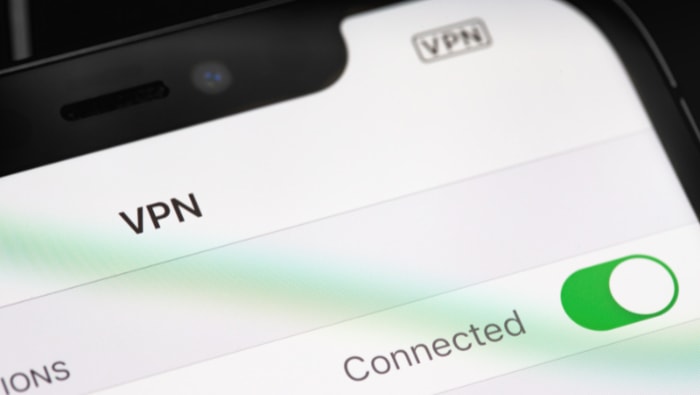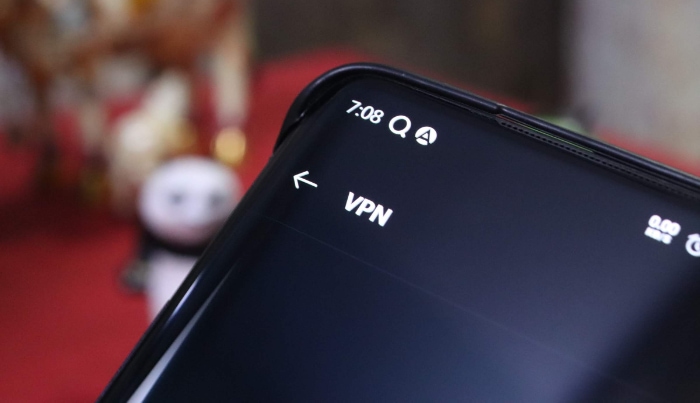The Best Free VPNs in 2025: Only Two Are Worth Your Trust

A free VPN can be a powerful tool for privacy, but choosing the right one requires caution. Many so-called “free” services come with hidden costs, from selling your browsing data to bombarding you with ads.
Reputable providers, however, fund their free plans by offering a limited version of their paid service. This approach creates certain trade-offs; you might encounter monthly data caps, reduced connection speeds, or a smaller selection of servers.
These plans are well-suited for casual users who need to secure their connection on public Wi-Fi or bypass simple geo-restrictions. They are not built for constant streaming or large downloads.
Shortlist at a Glance
After evaluating numerous services, two free VPNs consistently stand out for their commitment to privacy and performance. Proton VPN and Windscribe offer distinct approaches to free access, each catering to different user needs without compromising on core security.
Both providers deliver a trustworthy experience, but their limitations shape who they are best for.
Proton VPN Free
Proton VPN's free plan distinguishes itself by offering unlimited data, a rare feature in the free VPN market. The service maintains a strong privacy posture, supported by its open-source applications and independent security audits that build trust and transparency.
Its primary trade-off is the limited selection of server locations, which can lead to higher traffic and slower speeds during peak times. Users on the free tier also should not expect reliable access to streaming platforms or support for peer-to-peer file sharing, as these capabilities are reserved for the paid plan.
Windscribe Free
In contrast, Windscribe offers a data-capped free plan but provides access to a much wider range of server locations. Like Proton VPN, it also demonstrates a commitment to transparency with open-source applications.
Its monthly data allowance is generous enough for regular browsing and securing connections on public networks. The service includes a solid set of features that make it a practical tool for daily use.
While some streaming access might be possible, consistent unblocking of content libraries is a feature primarily associated with its paid tiers.
What Each Is Best For
Choosing between these two depends entirely on your specific requirements. Proton VPN is the ideal choice for users who prioritize unlimited data for secure, everyday browsing and need a reliable tool for bypassing online censorship.
Its focus is on privacy and unrestricted bandwidth, not entertainment. Windscribe is better suited for individuals who require the flexibility of multiple server locations and can operate within a monthly data limit.
Its model works well for light, intermittent usage, such as securing your connection while traveling or for occasional browsing.
How to Evaluate Free VPNs

Selecting a reliable free VPN requires looking beyond marketing claims and examining the provider's core policies and features. A trustworthy service is built on a foundation of verifiable privacy practices, essential security tools, and transparent performance limitations.
By assessing each of these areas, you can distinguish a safe and functional VPN from one that might compromise your data or deliver a poor user experience.
Privacy and Trust
A provider's commitment to privacy is the most critical factor to assess. Look for a service with a strict no-logs policy, which means it does not collect or store any information about your online activity.
The strongest evidence for such a policy comes from independent, third-party audits that verify the provider's claims. It is also important to consider the company's ownership and jurisdiction, as its location determines which data retention laws it must follow.
Reputable services are transparent about their corporate structure and operate with minimal analytics or trackers in their applications.
Security Essentials
Effective security depends on a specific set of technical features. The VPN should support modern and secure protocols like WireGuard or OpenVPN, which provide a stable and protected connection.
Robust encryption, such as AES-256, is the standard for safeguarding your data from interception. A kill switch is another non-negotiable feature; it automatically blocks all internet traffic if your VPN connection drops, preventing accidental data exposure.
Furthermore, the service must offer IPv6 and DNS leak protection to ensure your real IP address is never revealed. Some providers also include optional split tunneling, which lets you route some app traffic through the VPN while other apps connect directly to the internet.
Limits and Performance
Free VPNs invariably come with limitations that affect their performance. Many impose monthly data caps, which restrict how much you can browse or download.
Others may not have data caps but instead throttle connection speeds, especially during peak hours. Server congestion is another common issue on free plans, as many users are funneled through a small number of locations, leading to slower performance.
You should also check for any limits on simultaneous connections and verify that the provider offers stable, well-designed applications for all the platforms you use.
Use-Case Guidance

The best free VPN for you depends entirely on how you intend to use it. A service that excels at securing your connection on public Wi-Fi might not be suitable for accessing entertainment, while another might be specifically designed to overcome internet censorship.
Aligning a provider's strengths with your primary goal is essential for a satisfactory experience.
Streaming and Entertainment
It is important to set realistic expectations for streaming on a free VPN. Most free services have their servers blocked by major streaming platforms, making it difficult to access geo-restricted content libraries reliably.
Even if you find a server that works, data-capped plans can be a significant obstacle; streaming a single movie in high definition can consume an entire month's data allowance. For consistent, buffer-free streaming and reliable unblocking capabilities, upgrading to a paid plan is almost always required.
Public Wi-Fi and Travel
Using a VPN while connected to public Wi-Fi at airports, hotels, or cafes is one of its most valuable functions. To maximize your security in these environments, you should prioritize a service that offers an automatic connection feature on untrusted networks.
This ensures your protection is always active without manual intervention. Robust leak protection is also crucial to prevent your real IP address or DNS requests from being exposed.
For maintaining stable speeds while roaming, choosing a VPN that provides free servers in or near your travel destinations will deliver a much better performance.
Censorship and Access
In regions with heavy internet filtering, a VPN can be a vital tool for accessing blocked information and services. For this purpose, you should consider a provider that offers obfuscation or stealth capabilities.
These features disguise your VPN traffic to make it look like regular internet activity, helping it bypass sophisticated firewalls designed to detect and block VPN connections. Some services are more resilient against such filtering than others.
Proton VPN, for instance, has a strong anti-censorship posture and makes some of these advanced features available on its free tier, making it a dependable choice for maintaining access to the open internet.
Setup and Verification

Simply installing a VPN application is not enough to ensure your security; proper configuration and testing are necessary to confirm it is working as intended. Taking a few minutes to adjust the settings and run some simple checks will validate that your connection is secure and performing adequately.
This process helps you get the most out of your chosen service and confirms that its protections are active.
Essential Settings
After installation, the first step is to enable the most important security features within the application's settings menu. Activate the kill switch immediately.
This function acts as a safety net, blocking your internet access if the VPN connection unexpectedly drops and preventing your real IP address from being exposed. You should also enable any auto-connect options, which can automatically start the VPN when you join an untrusted network like public Wi-Fi.
Finally, confirm that all DNS and IPv6 leak protections are turned on. Most reputable VPNs also allow you to choose a connection protocol; WireGuard typically offers the best combination of speed and modern security, while OpenVPN is a highly reliable and extensively tested alternative.
Platform Nuances
The functionality of a VPN can vary depending on the device you are using. Desktop applications generally provide the most comprehensive set of features and configuration options.
Mobile apps are optimized for performance and battery life but might have a more streamlined interface. Browser extensions are the most limited, as they only protect the traffic within your web browser, leaving other applications on your device unprotected.
It is also important to be mindful of your provider's restrictions. Most free plans limit you to one simultaneous connection, so you will need to log out on one device before connecting on another.
Validation Checks
Once the VPN is configured, you should perform a few checks to verify it is working correctly. Before connecting, search for “what is my IP address” in your browser and note the result.
Then, connect to a VPN server and run the search again; the IP address and location should change to match the server. To test for leaks, you can use specialized websites that check for DNS or WebRTC exposures.
You should also run speed and latency tests at different times, particularly during evening peak hours, to get a realistic sense of performance on congested free servers. Finally, re-test the VPN's behavior on different networks, such as your home Wi-Fi and a mobile hotspot, to ensure it functions consistently everywhere.
Limits, Risks, and Trade-offs

While reputable free VPNs provide a valuable service, they are not without compromises. Providers must impose certain limitations to manage costs and encourage users to upgrade to paid subscriptions.
It is also important to be aware of the genuine risks associated with less scrupulous services that exploit the “free” label to compromise user privacy.
Typical Constraints
Even the best free plans come with deliberate restrictions. A service like Proton VPN offers unlimited data but limits you to servers in only a few countries.
This restriction can lead to server congestion and variable speeds, particularly during peak hours. Conversely, Windscribe provides access to more locations but imposes a monthly data cap, which can be quickly exhausted by data-intensive activities.
For both services, reliable access to streaming platforms is inconsistent, as the servers available to free users are often blocked by content providers.
Red Flags to Avoid
Beyond simple limitations, some free VPNs pose significant security and privacy risks. You should be extremely cautious of any service with a vague or non-existent privacy policy, as it offers no guarantee that your browsing activity is not being logged.
Another major red flag is when a VPN app requests excessive permissions on your device, such as access to your contacts or files, which are unnecessary for its operation. Scrutinize the terms of service for any language that suggests your data could be sold to third-party advertisers.
These warning signs reinforce the importance of choosing a reputable provider with a proven commitment to user privacy.
When to Consider a Paid Plan
If the limitations of a free plan interfere with your needs, it is time to consider a paid subscription. An upgrade becomes necessary for sustained streaming or peer-to-peer activities, as paid plans offer unlimited data and servers optimized for high-speed connections.
Paid services also typically allow for simultaneous use on multiple devices, providing comprehensive protection for your phone, laptop, and other gadgets under a single account. If you require access to a broad global server network or consistently high performance without slowdowns, a premium provider is the only viable option.
Conclusion
Choosing the right free VPN comes down to matching its features to your specific needs and network environment. Proton VPN’s unlimited, privacy-focused free tier is excellent for everyday browsing and securing your connection without worrying about data limits.
For those who need more flexibility in server locations for light use, Windscribe’s data-capped plan offers a practical alternative. Regardless of which service you choose, it is essential to test its real-world performance and protections using the checks outlined previously.
After confirming its behavior, you can accurately decide if a paid upgrade is warranted for more demanding activities like streaming, peer-to-peer file sharing, or securing multiple devices with greater reliability.


